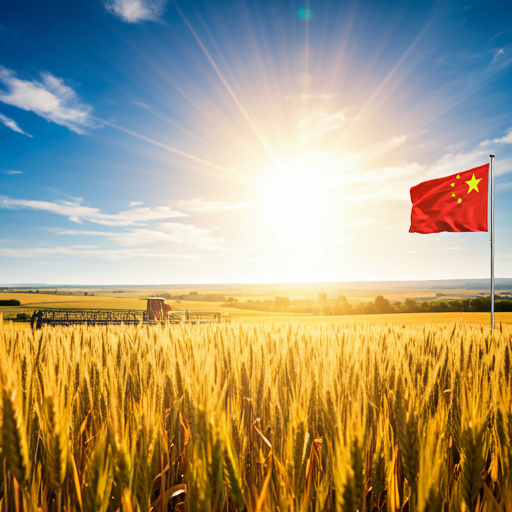
The issue of foreign ownership of American farmland, particularly by China, has sparked considerable debate. Here’s a well-reasoned and logical argument concluding that China should not own any American farmland:
1. National Security Concerns:
Strategic Land Control: Farmland near military installations or critical infrastructure could pose significant security risks. If China were to control such land, there’s potential for espionage or sabotage, directly affecting national security.
Food Security: Owning farmland can influence food production and distribution. In a conflict scenario, this could be leveraged as a form of economic warfare, potentially leading to food shortages or price manipulation within the U.S.
2. Economic Implications:
Local Economic Impact: Foreign ownership can lead to the displacement of local farmers, pushing out family-run operations in favor of large, foreign-owned agricultural conglomerates. This disrupts local economies, reduces competition, and can lead to job losses.
Control Over Agricultural Markets: If China were to control significant portions of American farmland, they could influence commodity prices, impacting not just the U.S. but global food markets, given the U.S.’s status as a major agricultural exporter.
3. Cultural and Historical Sovereignty:
Preservation of Agricultural Heritage: American farmland is not just about productivity but also cultural heritage. Allowing foreign ownership, especially by a geopolitical rival, could be seen as an erosion of American rural traditions and independence.
Historical Precedents: There are historical parallels where foreign powers used economic investments as a precursor to broader influence or control over a region. Owning land is a form of investment in the future, and China’s strategic investments in U.S. infrastructure could be seen in this light.
4. Political and Geopolitical Strategy:
Trade and Diplomatic Leverage: China owning U.S. farmland could become a tool for political leverage. It might be used as bargaining chips in international trade negotiations or as a means to exert pressure during geopolitical tensions.
Long-Term Influence: Real estate investment, especially in strategic sectors like food production, can be part of a long-term strategy to gain influence. Land ownership represents a long-term investment that could extend Chinese influence into American society far beyond economic interests.
5. Regulatory and Legal Concerns:
Transparency and Oversight: There are challenges in ensuring that foreign ownership, especially by state-linked entities, operates with full transparency. This includes concerns over how land use decisions are made, environmental impacts, and labor practices.
Regulatory Gaps: Current U.S. laws might not sufficiently address the nuances of foreign ownership of farmland, particularly when it comes to entities from nations like China, where government and business are deeply intertwined.
Conclusion:
Given these considerations, it becomes evident that China owning American farmland could undermine national security, economic stability, cultural heritage, and political sovereignty. The strategic importance of farmland extends beyond mere agriculture; it touches on the very fabric of American independence and security.
Security: Allowing foreign ownership, especially by a nation with whom the U.S. has complex geopolitical relations, risks compromising national security.
Economic Independence: Farmland should be under the control of those who prioritize the well-being of the American economy, not foreign entities with potentially conflicting interests.
Cultural and Political Sovereignty: Ownership of land by foreign powers, particularly in such a critical sector, can be seen as a step towards reducing U.S. sovereignty.
For these reasons, it’s logical to argue that for the sake of safeguarding national interests, China should not own any American farmland. This stance isn’t just about protectionism but about preserving the strategic, economic, and cultural integrity of the United States.
